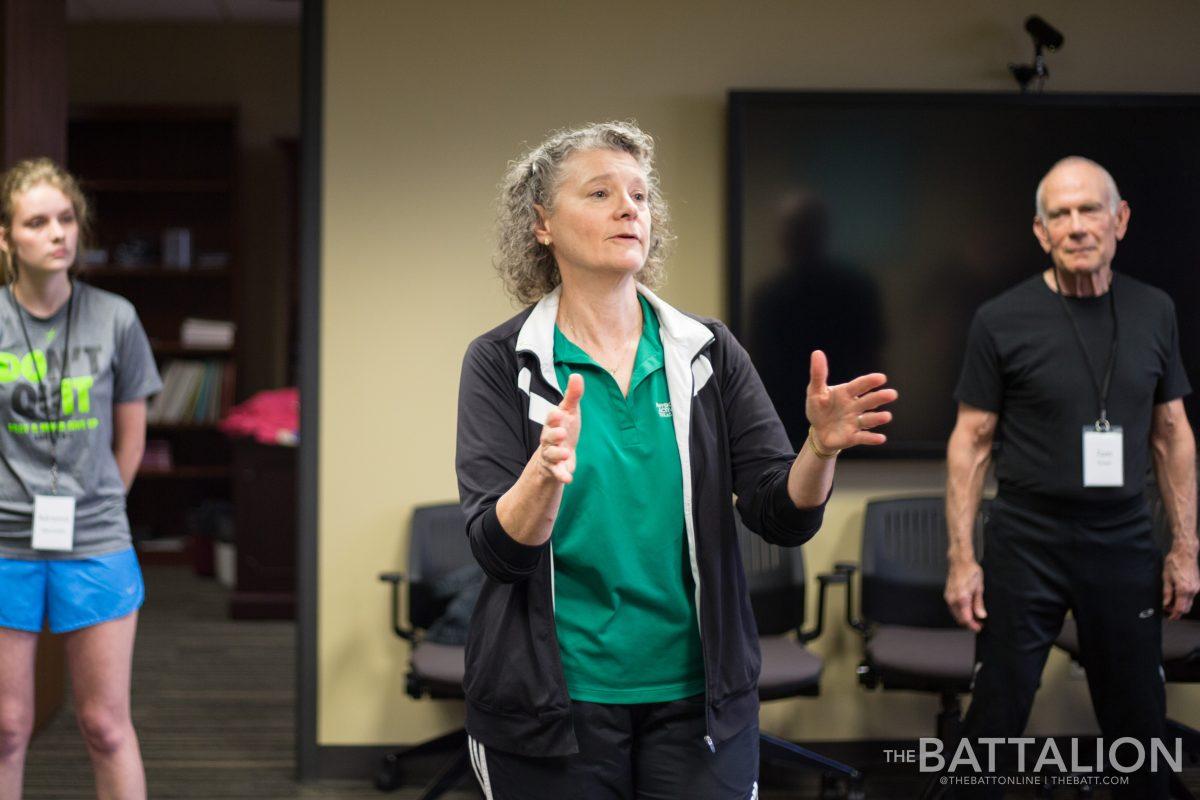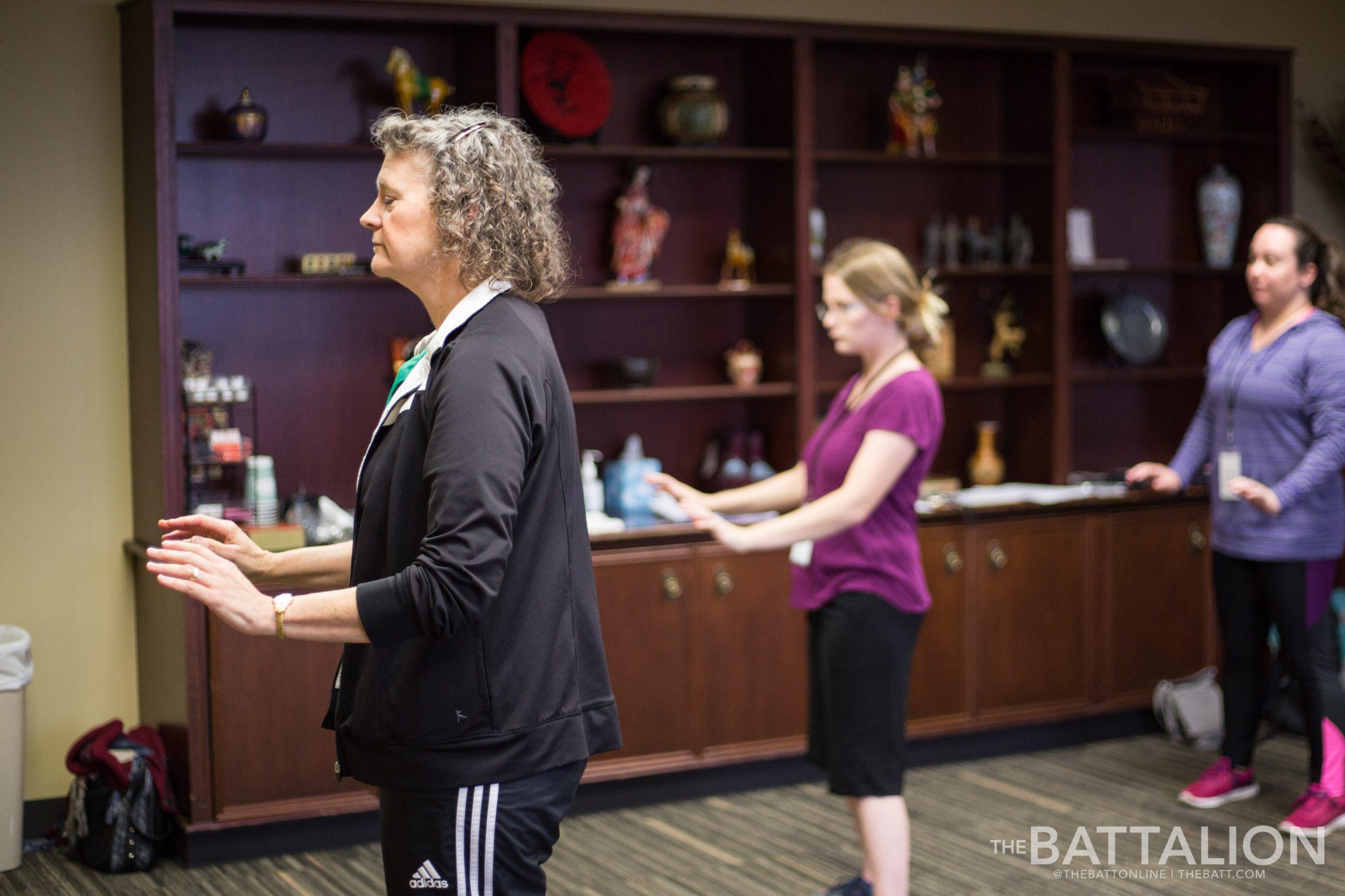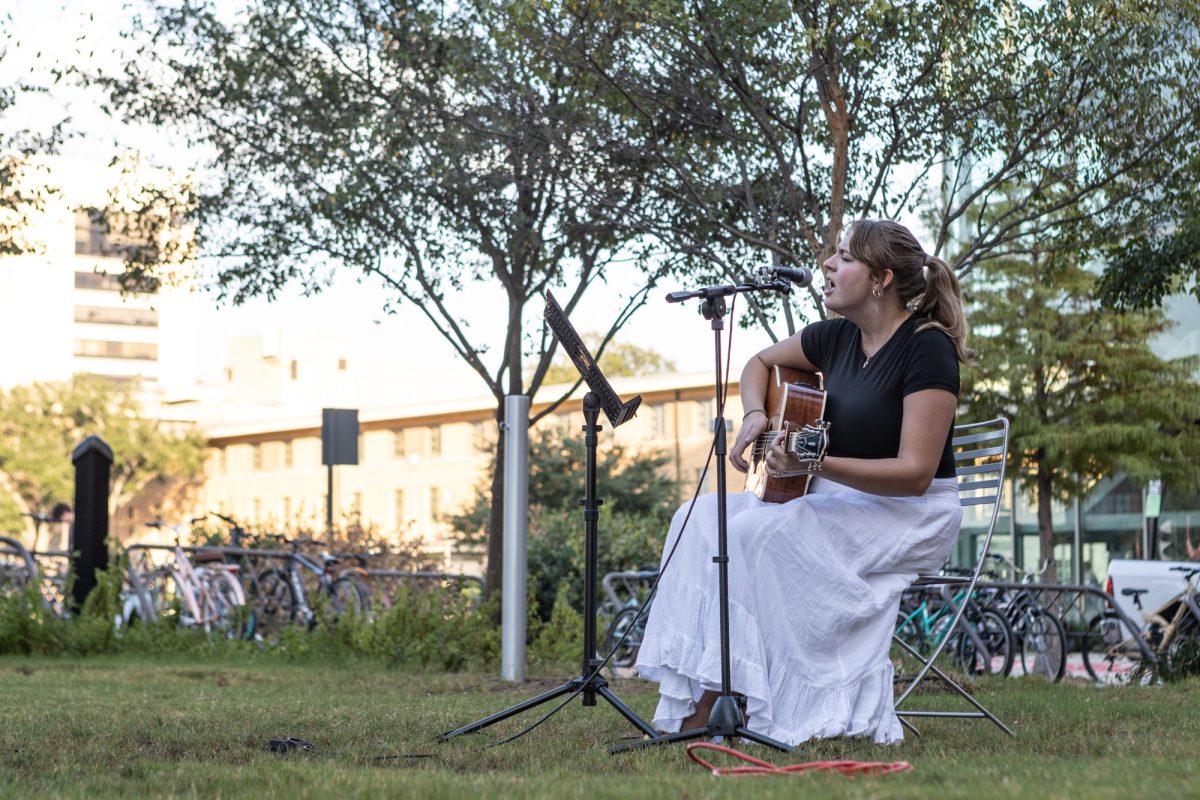To promote serenity through gentle movements, Tai Chi lessons will be offered by the Public Partnership and Outreach department through Nov. 15.
Tai Chi can reduce stress and is sometimes described as “meditation in motion” according to executive director of Public Partnership & Outreach Effectiveness Suzanne Droleskey. The classes are held in Rudder Tower for $35 and will be led by Droleskey.
Droleskey said Tai Chi was originally developed in China for self-defense, but has evolved into a graceful form of exercise that’s now used for stress reduction and to help with a variety of other health conditions.
“Tai Chi, also called Tai Chi Chaun, is as noncompetitive, self-paced system of gentle physical exercise and stretching,” Droleskey said. “To do Tai Chi, you perform a series of postures or movements in a slow, graceful manner. Each posture flows into the next without a pause, ensuring your body is in constant motion.”
Droleskey said the intensity of Tai Chi varies depending on the form or style practiced since some are more fast-paced and exerting than others.
“You can practice Tai Chi regardless of your age or physical ability,” Droleskey said. “Tai Chi emphasizes technique over strength. In fact because Tai Chi is low impact, it may be especially suitable if you’re an older adult who otherwise may not exercise.”
According to Droleskey, during Tai Chi the focus on movement and breathing is meant to create a state of relaxation so stress, anxiety and tension can melt away as participants focus on the present.
“Although, more research is needed, preliminary evidence suggest that Tai Chi may offer numerous benefits beyond stress reduction, including: improving sleep quality, lowering blood pressure, relieving chronic pain and others,” Droleskey said.
Droleskey said she believes that while people can benefit from the 12 week Tai Chi class, there are greater benefits for anyone who chooses to continue practicing the exercise in the future.
“You may find it helpful to practice Tai Chi in the same place and at the same time every day to develop a routine,” Droleskey said. “You can even draw on the soothing mind-body concepts of Tai Chi without performing the actual movements if you get stuck in stressful situations–a traffic jam or a contentious work meeting, for instance.”
Carolina Rodriguez Paras, industrial engineering Ph. D. candidate, said the first time she took a Tai Chi lesson was the summer of 2016.
“Tai Chi is a lifelong learning process, so there’s always something that you can improve,” Paras said. “It is really a very relaxing activity that anyone can do. Once you start Tai Chi, there’s always something new that you can work to improve, or different forms that you learn.”
Industrial engineering graduate student Patricio Rodriguez, began practicing Tai Chi a year ago and said it has helped him to stay calm when thinking of tasks he still needs to complete.
“I learned to improve my deep breathing as a relaxation technique in conjunction with the movements,” Rodriguez said. “When both are combined perfectly, the relaxation effect is more effective. I highly recommend it as a way of learning to relax. Especially, as a student, it is good to clear the mind every once in a while.”
Exploring Tai Chi and its benefits
October 24, 2018
Photo by Photo by Megan Cusick
Executive Director of Public Partnership & Outreach Effectiveness Suzanne Drolskey teaches a class of Tai Chi students in Rudder Tower.
0
Donate to The Battalion
Your donation will support the student journalists of Texas A&M University - College Station. Your contribution will allow us to purchase equipment and cover our annual website hosting costs.










